News
It’s sad that some lawmakers don’t know content of tax reforms Bill-Barau
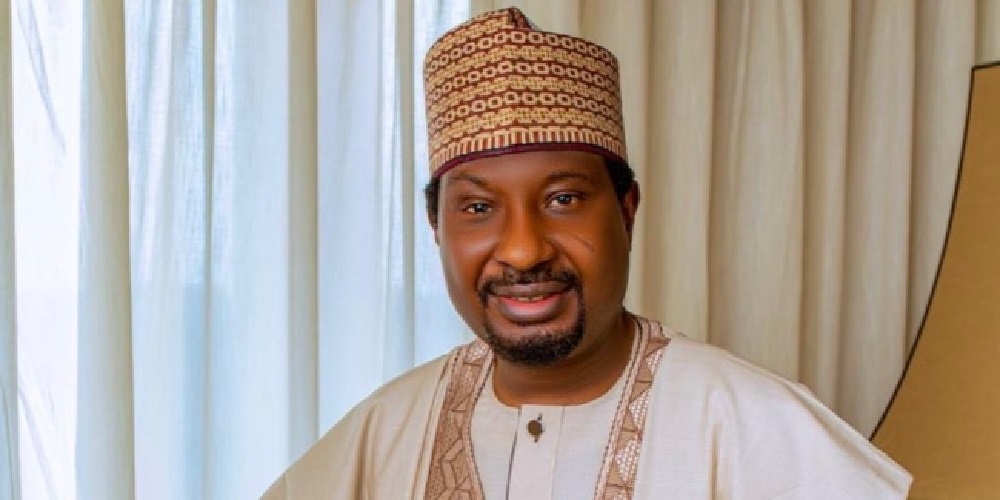
Deputy Senate President, Barau Jibrin, has said it is unfortunate that majority of people, including some lawmakers, do not understand the contents of the tax reform bills.
He said the controversial bills were quickly passed for second reading to allow the public make comments on them.
The bills, which were transmitted to the National Assembly by President Bola Tinubu earlier in September, have sparked reactions, especially among Northerners, who felt the legislation would further plunge the region into more economic hardship.
Northern governors, traditional leaders and other different groups have rejected the bills, saying they are inimical to the region and the nation at large.
Barau disclosed this in an interview with BBC Hausa service, Governor Babagana Umara Zulum of Borno State decried that governors would not be able to pay salaries if the bills were passed into law, expressing concerns over how the bills had received urgent attention at the National Assembly.
But speaking with BBC Hausa, Senator Barau Jibrin, who has come under heavy criticisms especially on social media for supporting the bills, said the speedy passage was to enable Nigerians have room to comment on the legislation before considering the next line of action.
He said, “Because of the contents of the bills, we decided to invite experts or the people who developed them on behalf of the President to explain to us the provisions of the bills and also advise us so that Nigerians will know about it.
“The bills have to scale the second reading before they could be taken to the committee for a review. And while we could ask (the committee) questions, Nigerians who might have only watched it on the television could not have room to ask questions. That was why it was resolved that the bills would be passed for the second reading so that Nigerians would have the chance to comment, give their contributions and also ask questions.”
Asked why the bills were not first presented to the committee before passing them for the second reading, Barau said, “No, it is not done that way. It has to pass the second reading before it can be taken to the committee. The second reading is done so that the public can have room to pass their comments on it. That is why the bills were presented to the committee now so that they will review, x-ray it and tell us the contents therein.
“The second reading is not the end of the process. No, that is even where the process begins. And it was done in order to enable the public (youth, children, women, clerics and everyone) to comment and register their complaints about it,” he stated.
Responding to whether lawmakers were aware of the hardship the bills could subject Nigerians to, Barau remarked, “Nobody will do something that will have negative impact on his people. The issue now is to first know the provisions of the bills. Majority of people don’t even know the contents therein, even some of our lawmakers.
“We have to first have a grasp of the bills before they would be understood, that was why it was sent to the committee for them to review so that we know the situation. We will also invite experts to go through it, but we have not gotten to that level now.”
News
Belgian Ambassador Commits to Stronger Nigeria Ties
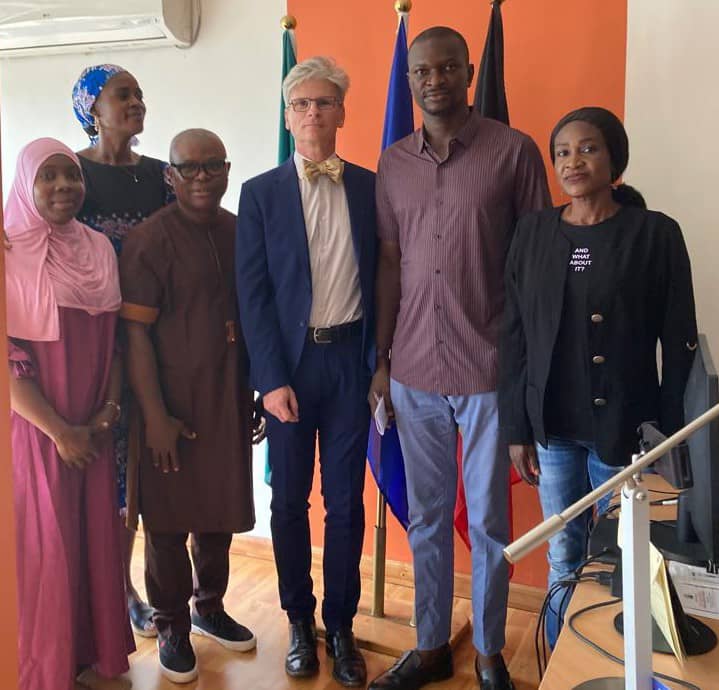
By Gloria Ikibah
The Embassy of Belgium in Nigeria has reaffirmed its commitment to deepening diplomatic relations with the country.
Belgian Ambassador Pieter Leenknegt stated this during a courtesy visit by the Diplomatic Correspondents’ Association of Nigeria (DICAN), led by its Chairman, Frederick Idehai, at the embassy in Abuja.Discussions centered on fostering collaboration, particularly in capacity-building initiatives for DICAN members and other areas of mutual benefit.
Addressing the delegation, Ambassador Leenknegt also commented on the ongoing discord between Senate President Godswill Akpabio and Kogi Senator Natasha Akpoti-Uduaghan, describing it as an unnecessary distraction, urging key stakeholders to promote dialogue and reconciliation in the interest of national stability.
Speaking further, Ambassador Leenknegt has some reservation over what he described as “sloppy journalism” among Nigerian Journalists which needs to be corrected.
This unpalatable adjective, according to the envoy, stems from an experience he had when he visited the Minister of the Federal Capital Territory, Nyesom Wike.
“It was a fruitful meeting I had with the FCT Minister with key areas of interest well highlighted.
“However, the next day I was surprised to find in over 13 print and online media that the meeting the previous day, was between the outgone Ambassador of the Embassy and with his photograph attached.
“This was a meeting I personally attended so how could they attribute it to my predecessor and attached his photo?
“That’s terrible and what it meant was that one person goofed and others copied from the original source without due verification,” he lamented.
Earlier in his remarks, DICAN Chairman, Comrade Idehai Frederick emphasised that the partnership will enhance cultural exchange between Nigeria and Belgium.
He said the role of media in promoting democracy, good governance and bilateral relations cannot be overemphasized.
“We will provide your country with the needed support in the area of quality and credible reportage for the sake of humanity,” Idehai said.
The visit also touched on the upcoming DICAN Diplomatic/Security International Conference, scheduled for June 19, 2025, in Abuja to brainstorm on how to make the world a better and safer place.
“We want to enhance bilateral relations through our engagement and agenda setting.
“When governments across the nations of the world know that journalists are interested in monitoring their programmes, they wake up and address their challenges,” Idehai stated.
News
Reps Minority Caucus Condemns Killings in Edo State

By Gloria Ikibah
The Minority Caucus of the House of Representatives has strongly condemned the recent killings of about 16 Nigerians, mainly northerners, by an armed group in Edo State.
In a statement signed by Minority Leader, Rep. Kingsley Chinda, Minority Whip, Rep. Ali Isa JC, Deputy Minority Leader Rep. Aliyu Madaki, and other leaders of the caucus on Saturday, the caucus described the attack as “barbaric” and “reprehensible,” warning that if such violence is not curbed, it could threaten national peace and unity.
“We find such brutal killings of innocent Nigerians in any part of the country by lawless mobs very reprehensible, and if allowed to fester without being put in check by responsible organs of the federal government, such actions could threaten the peace and unity of the country,” the statement read.
The lawmakers urged Nigerians to avoid taking the law into their own hands and instead seek the intervention of law enforcement agencies when faced with security concerns.
The Minority Caucus called for swift action, and urged President Bola Ahmed Tinubu to direct security agencies to investigate the incident and ensure those responsible are brought to justice.
“We implore all Nigerians to never resort to such jungle attacks on their fellow citizens but to always implore the services of lawful authorities whenever they notice any issue of concern.
“In the face of this grave incident, which is already setting emotions on edge in parts of the country, we hereby call on the President and Commander in Chief of the Armed Forces of the Federal Republic of Nigeria, His Excellency Senator Bola Ahmed Tinubu, GCFR, to direct the security agencies to investigate this matter and bring all those involved in the killings to book in order to prevent its recurrence. And also adequate compensation should be paid to the affected families,” they demanded.
The caucus also appealed to Nigerians to remain calm and allow the government to handle the matter.
“We also call on all Nigerians to remain calm, peaceful, and law-abiding and allow the federal and state governments to get to the root of this matter in the interest of justice,” the caucus stated.
The lawmakers extended their condolences to the families of the victims, and assured Nigerians of their commitment to ensuring justice is served.
“We express our sincere sympathies and condolences to the families of the victims even as we assure them and all Nigerians that we, the Minority Caucus of the House of Representatives, will remain eternally vigilant until justice is done on this matter,” the statement continued.
News
Police ‘rescue’ landlord, daughter from k!dnappers clutches in Lagos

By Kayode Sanni-Arewa
Suspected gunmen abducted a landlord and his daughter in the Ijede area of Ikorodu in Lagos.
In a statement on Sunday, Benjamin Hundeyin, the Lagos police spokesperson, said the kidnappers abducted the victims on Wednesday.
Hundeyin added that on Saturday, the command rescued the kidnapped victims unhurt and handed them over to their family members.
According to the police spokesperson, the command has launched a manhunt for the perpetrators.
“The police received information that some kidnappers invaded Ijede community and kidnapped two persons,” the statement reads.
“Upon receipt of the report, police operatives were mobilised to the scene where it was observed that the kidnappers forcefully gained entrance into the house of a 40-year-old man, killed the security dog and kidnapped him.
“The kidnappers equally forced their way into the nearby house and kidnapped the landlord’s 25-year-old daughter.
“With the collaborative efforts of both the police joint task force and other stakeholders, the kidnapped victims were rescued unhurt and handed over to their family members.
“The area is relatively calm and being closely monitored, and efforts are ongoing to apprehend the wanted suspects.”
-
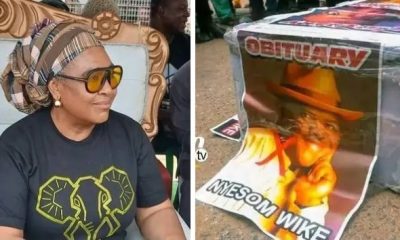
 News11 hours ago
News11 hours agoWike’s Aide reacts as photo appears online, points accusation finger at paid failed actress
-
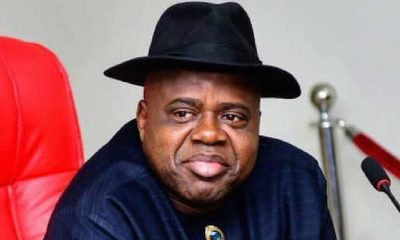
 News17 hours ago
News17 hours agoUpdated: WATCH moment Gov Diri’s Tech Adviser Kerry admits blowing up pipelines (Video)
-
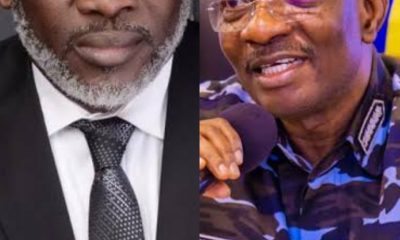
 News7 hours ago
News7 hours agoFormer HoR member, TeeJay Yusuf calls on IGP, Kogi govt, other agencies to curb rising insecurity in Okun-Yoruba
-
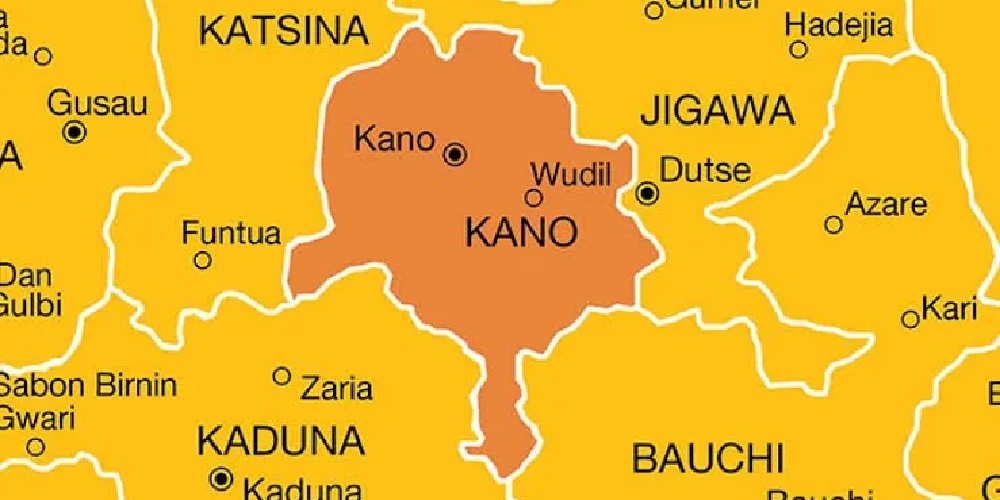
 News8 hours ago
News8 hours agoEdo Killings: Kano Govt Sends Fact-Finding Delegation, Demands Justice
-
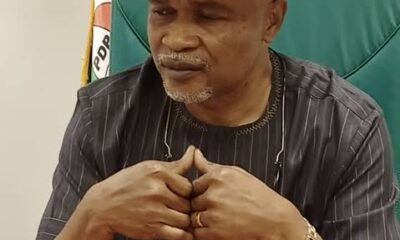
 News2 hours ago
News2 hours agoReps Minority Caucus Condemns Killings in Edo State
-
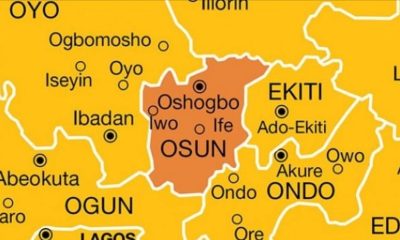
 News8 hours ago
News8 hours agoJust in: Popular Osun Monarch Joins Ancestors
-
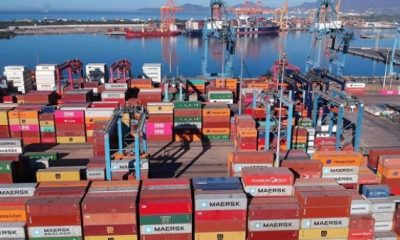
 News5 hours ago
News5 hours agoMali, Niger, Burkina Faso Impose 0.5% Levy On Goods From ECOWAS Nations
-
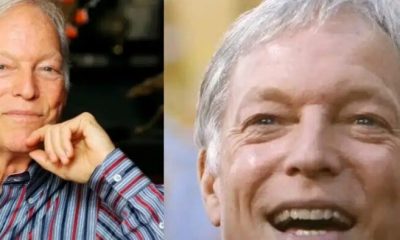
 News5 hours ago
News5 hours agoSad! Popular actor, Richard Chamberlain is dead

















